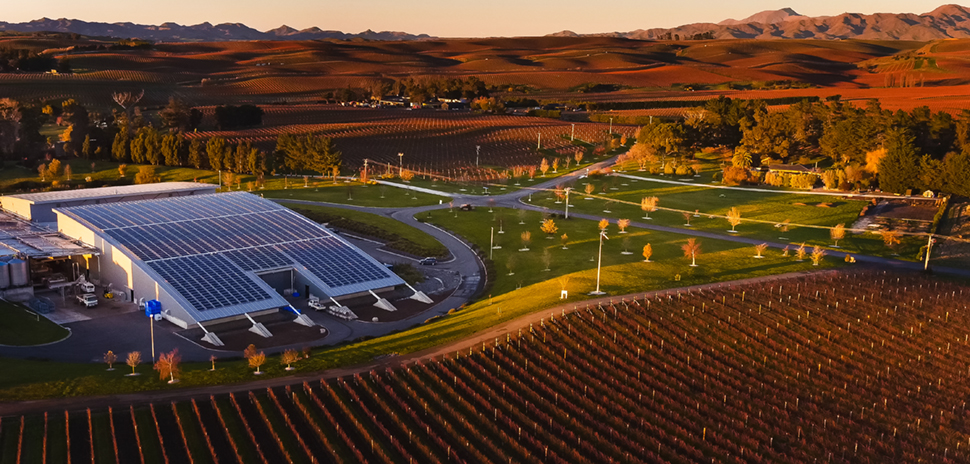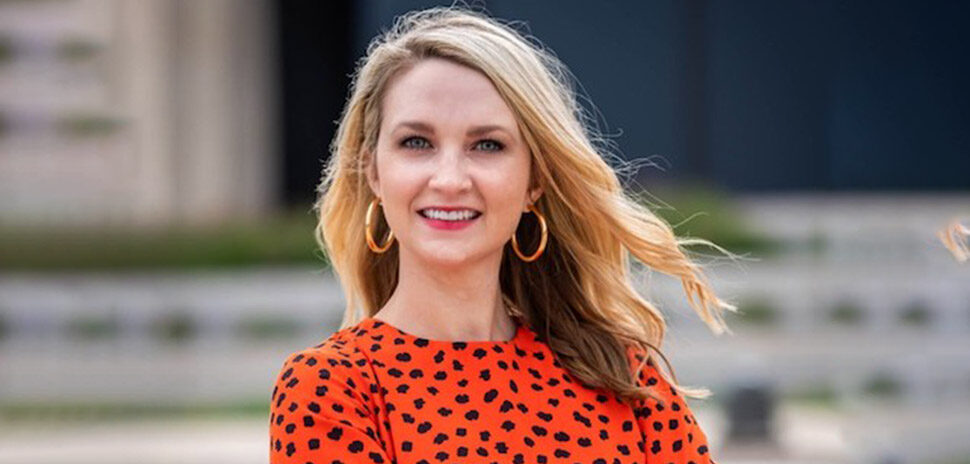Solar arrays, variable-speed drives on equipment, and naturally-cooled caves have helped a family-owned business win the top award in the eighth annual sustainable-winegrowing competition put on by Fort Worth’s Botanical Research Institute of Texas, or BRIT.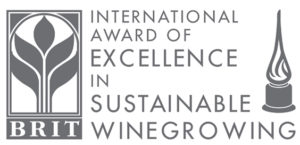
Initiatives like those in the three areas of sustainability — environmental, economic, and social — were important parts of the winning application from Healdsburg, California-based Alexander Valley Vineyards. But it was the taste of the platinum medal-winning wine — the 2014 Organic Cabernet Sauvignon, Single Vineyard — that sealed the deal for the Wetzel family, who have produced wines on an historic property in California’s wine country since 1975, according to Ed Schneider, BRIT’s president and director.
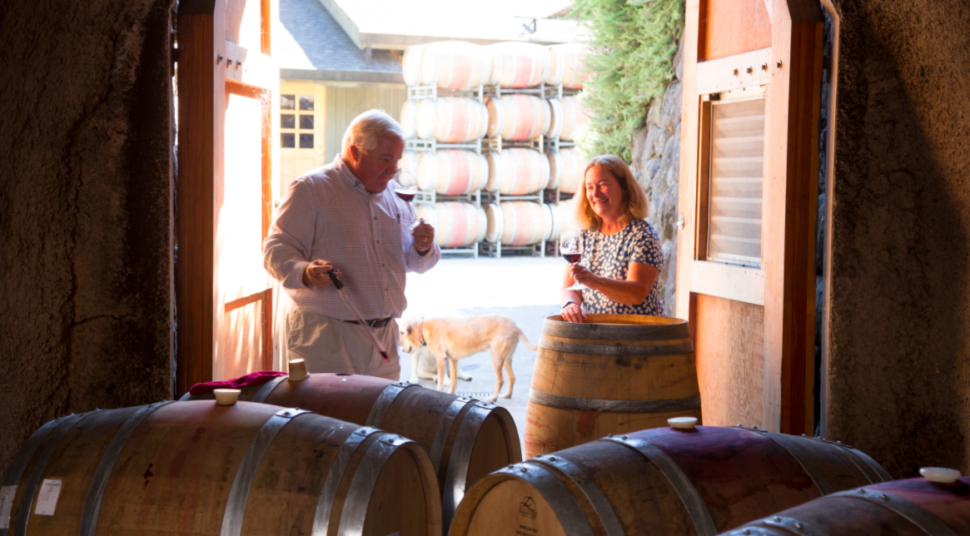
Hank Wetzel and Katie Murphy of Alexander Valley Vineyards.
Hall Wines, owned by North Texas’ Craig and Kathryn Walt Hall, won the top prize in the inaugural sustainable winegrowing competition in 2010.
“Our judges especially noted that the 100 percent organic varietal was perfectly balanced with fruit and spice to the taste and a testament to the Wetzels’ commitment to sustainable agriculture and family farming,” said Schneider, whose Fort Worth nonprofit does education and scientific research on plants all over the world.
The international competition is the only one of its kind, according to Chris Chilton, BRIT’s director of marketing. BRIT launched it in 2010 to raise awareness about sustainability issues in winemaking and to shine a light on growers who are leaders in areas such as conservation and stewardship. Hall Wines, owned by North Texas’ Craig and Kathryn Walt Hall, won the top prize in the inaugural sustainable winegrowing competition in 2010.
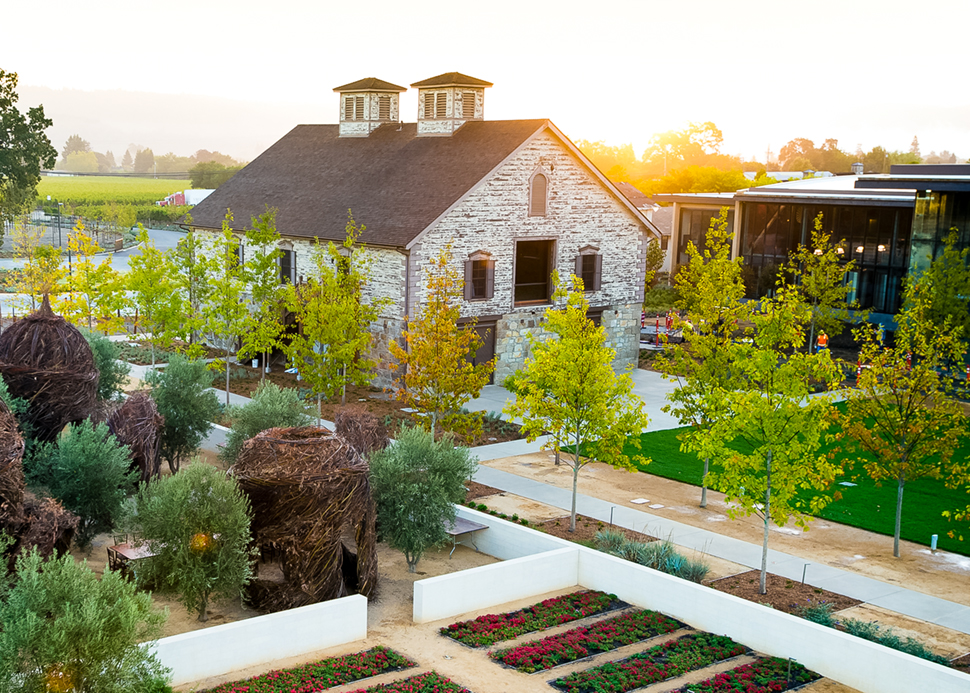
Hall Wines, owned by North Texas’ Craig and Kathryn Walt Hall, won the top prize in the inaugural sustainable winegrowing competition in 2010. The St. Helena, California Vineyard is seen here. [Photo courtesy of BRIT]
As wineries are typically located near sources of flowing water, vineyard operations can damage animal species directly or through soil erosion that harms the waterway, Chilton said.
“Being ‘green’ or sustainable isn’t always the cheapest option,” he said. “Nearly everything requires some sort of capital outlay.”
The flip side is that consumers are increasingly voting with their wallets for sustainably-minded businesses, he said.
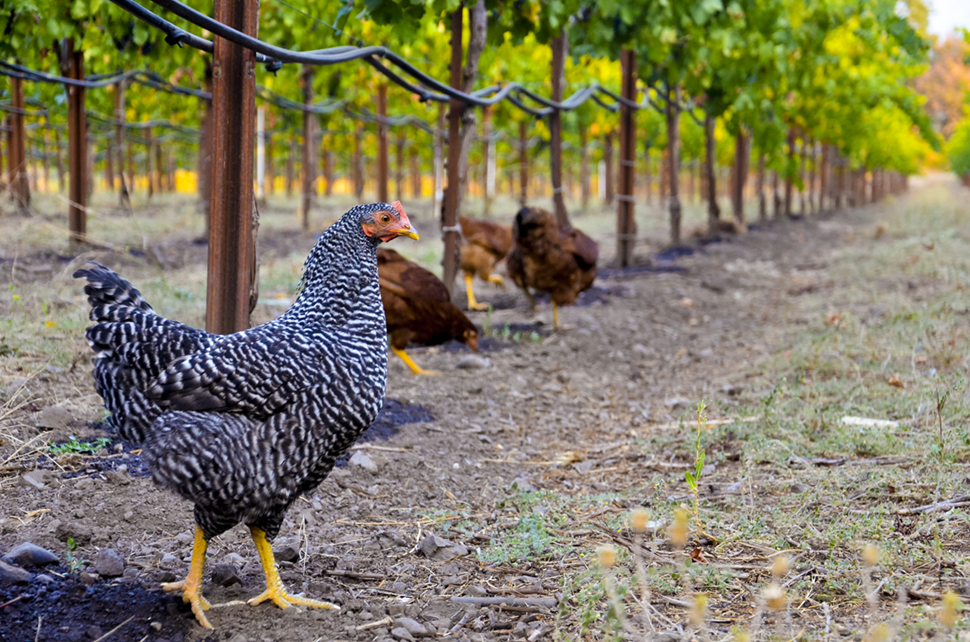
Critters like chickens and sheep work the land at Parducci Wine Cellars. The Ukiah, California Vineyard won the top prize in 2011. [Photo courtesy of BRIT]
“People want to know that the products they buy are being made in an environmentally responsible manner.”
Chris Chilton
“People want to know that the products they buy are being made in an environmentally responsible manner,” Chilton said.
Alexander Valley will be among five vineyards from across the globe whose sustainable products and practices will be recognized at BRIT’s “Vine to Table” award dinner and auction, set for April 11 in Fort Worth. Applications for the 2019 awards open up in May at BRIT.org/wineaward.
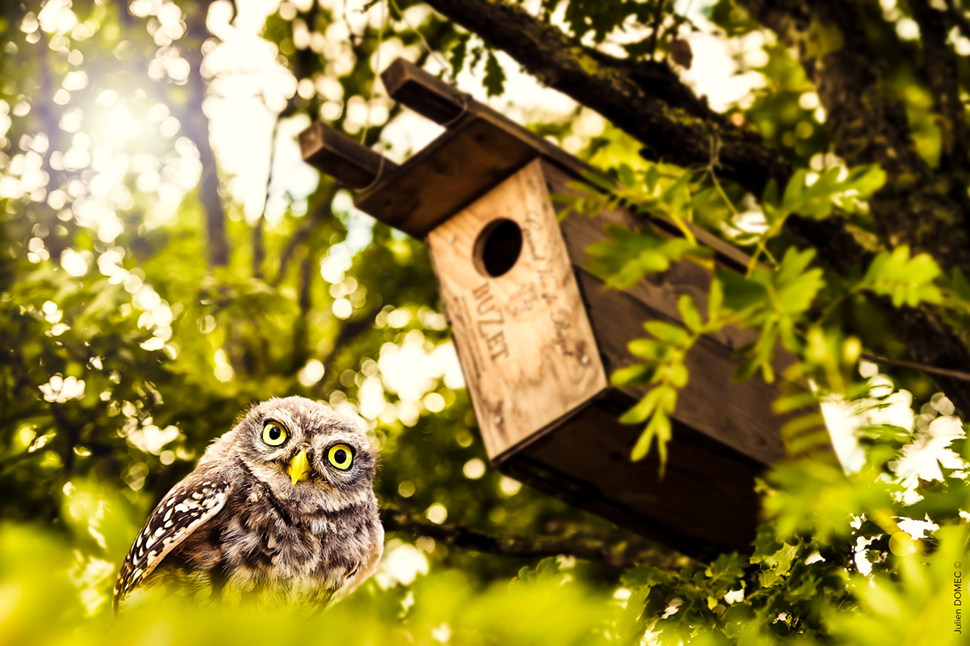
Owls aren’t the only winged creatures who hang around France’s Les Vignerons de Buzet. The winery landed 2016’s top prize for achievements such as landing bee-friendly certification and using drones to help fertilize vines. [Photo courtesy of BRIT]
READ NEXT
UTA, BRIT Joining Forces to Further Plant Research
Together, UTA and BRIT will conduct research they hope will lead to new biofuels, higher crop yields, and better understanding of Earth’s plant diversity.
Breakthroughs: High-Minded Discoveries
Monumental revelations are in the hands of North Texas university researchers — and students.
Discovery: Aircraft Composites, BRIT & TCU, Retail Discounts, Math Assessment
Texas Christian University and the Botanical Research Institute of Texas announced a research and education partnership that will add plant science and field research to the university’s curricula.
![]()
Get on the list.
Sign up to keep your eye on what’s new and next in Dallas-Fort Worth, every day.










